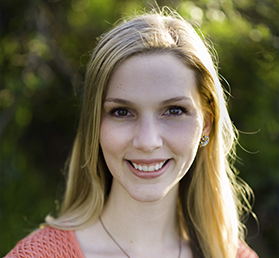Interview with Asking Matters Member Sara Janzen
by Brian Saber
Sara, a fellow Kindred Spirit, is a Major Gift Officer for the California Academy of Sciences. She’s been a member for just over a year, and is using Asking Matters in various ways personally and throughout her department. I was particularly fascinated to hear how she’s using Asking Matters material in the performance review process. Among other things, she asks her staff to watch particular Recorded Trainings as part of their continuing education efforts.
What has your experience been? I’d love to hear from you at brian@askingmatters.com. Brian Saber, President.
 BRIAN: Hi, Sara. You’ve been a member a bit more than a year now, and I’d love to know how Asking Matters and the Asking Styles have helped you most during that time.
BRIAN: Hi, Sara. You’ve been a member a bit more than a year now, and I’d love to know how Asking Matters and the Asking Styles have helped you most during that time.
SARA: The two biggest advantages of being a member have been learning about my Asking Style and having professional development resources on-demand.
I’ve been a fundraiser for much of my career, and I’ve always had a sense of what my strengths and greatest areas for improvement are. I’m great at building and maintaining relationships, but I can’t remember dates, budgets, or stats to save my life! This caused me a lot of stress when it came time for donor or staff meetings, because I felt like I was severely lacking as a professional. It wasn’t until I learned about the Asking Styles and that I was a Kindred Spirit that I understood I don’t have to be everything to be great at my job and make an impact. I’ve come to embrace my Kindred Spirit fabulousness, forgive my need for cheat sheets and one-pagers, and partner with colleagues and volunteers who complement my style. This has led to much less stress which means I’m more present, confident, and authentic with donors and prospects – something that means very much to me and that leads to greater fundraising success for the organization.
I should confess I am a professional development nut. I can’t get enough of it. I love learning more about our field and how to bring out the best in volunteers, org leadership, donors, and myself. I just love it. The Asking Matters treasure trove of handouts, recorded trainings, and activities is like a work-related Disneyland for me. I can use the resources at any time – squeezed in between meetings or stretched over a couple of hours. They are clear, concise, and relevant. I use them for my own education and to help me better support others in their own professional growth.
BRIAN: Wow, that is quite a testimonial! Thanks, Sara.
How do you use the Asking Matters resources to support others in their professional growth? I know many of our followers lead development offices and are always looking for some pointers.
SARA: I was formally introduced to Asking Matters when department leadership designed an activity around the Asking Style Assessment for our annual retreat. All staff members took the questionnaire and then partnered with someone with a different style. We were led through a number of different scenarios unrelated to fundraising that had us asking our partner for something by appealing to their Asking Style. It was great practice and a wonderful opportunity to receive immediate feedback to improve our pitch. It also gave us an opportunity to learn more about each other, our strengths, and how we might partner together to better reach our constituents.
Asking Matters resources are helpful throughout the year, but I find them especially helpful when on-boarding new staff and after performance reviews. The tools and recorded webinars offer great content that could easily complement someone’s professional development plan or introduce new hires to fundraising concepts.
BRIAN: Can I steal that and create an Asking Matters exercise like the one you did? I like the idea of using the Asking Styles to ask for something other than a charitable gift!
SARA: I’ll ask the women who designed the exercise what they think. They might remember the exact scenarios. Some were pretty funny!
BRIAN: Sara – I think you could teach the Asking Matters material! Interesting that you should talk about companies wanting evaluations. We talk about how Mission Controllers and Rainmakers are more suited for the institutional donors because those funders generally want facts, figures, and outcomes. I understand the challenge as a fellow Kindred Spirit. I often end up sending that material as a follow up once I know exactly what they want. Do you find as you move more toward asking individuals that you naturally need less of that at hand?
SARA: I still work on the Corporate Giving side of things, so I haven’t been soliciting individuals for personal donations. That said, I think it’s easy for fundraisers to forget that individual relationships are essential to successful corporate giving. I may not be asking them for a personal donation, but I am asking them to advocate for and invest in us. The conversation might focus more on visibility or evaluation, but without connecting with the values and mission of the company’s employees, you’re not going to get anywhere.
In fact, many companies now administer their corporate giving through a committee consisting of employees. It’s always about people – the people our organizations serve, the staff who make the programs and services possible, the donors who feel they are making a meaningful contribution and difference by investing in our organizations. We are the privileged folks who get to use our talents to connect those groups of people. It’s a win-win-win-win! Just like in individual giving, I need to understand what will help my prospect say “yes.” If it means more impact stories, I’ve got them! If it means more facts and figures, I find a way to provide that. I try to be creative about bringing quantitative information with me to a meeting. I might not remember the total number of school children served by our field trip program, but I will easily remember that by awarding us the requested grant amount, the prospective donor would give an entire classroom of children the opportunity to experience the wonder of our museum and the natural world. I find the measurable outcomes that resonate with me so I can convey my passion authentically to a prospective donor. You can’t fake that enthusiasm, and people can see through you if you try. I completely agree that sending hard facts or requested evaluation materials as a follow-up is very helpful if that’s what your prospect desires.
BRIAN: So true – almost every significant gift comes from that face-to-face experience. So many development officers are superb with corporations, foundations and government funders, which means they’ve got a broader skill set for soliciting individuals than they think!
Sara, I wanted to get back to another comment you made. You mentioned using the Asking Matters material with staff after performance reviews. Can you expand on that?
SARA: Sure. As part of our performance review process, we set goals for the coming year. In addition to goals related to fundraising and strategy I always include at least one professional development goal and encourage my staff to as well. Once I’m specific about the skills I will further develop it’s easy to find relevant recorded trainings and other resources on the Asking Matters member page to help guide the way. It’s a nice starting point in the process and a great way to demonstrate that you are actively working on that goal.
BRIAN: Wonderful. A whole new set of benefits. Sara, thanks so much for sharing your experiences with us, and thanks for being such a great advocate for Asking Matters!




